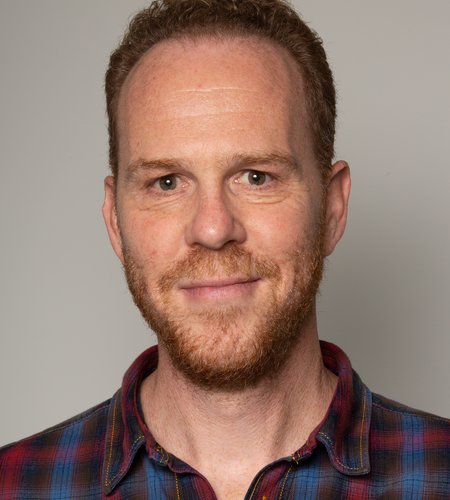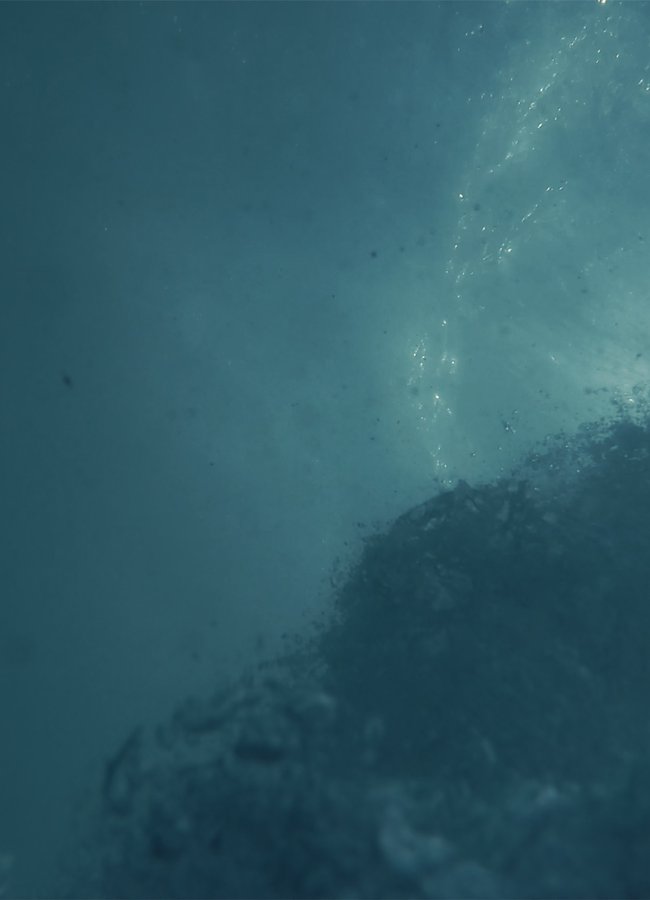We are pleased to introduce Echoview educator and acoustician, Dr Toby Jarvis.
His skills are a valuable asset for our clients, partners and friends across the globe as well as the broader hydroacoustic community.
Thank you for the interview Toby!
Name/Title
Dr Toby Jarvis, Acoustician, Echoview Software
What do you do at Echoview Software?
My primary role is training, which involves the design, delivery and marketing of Echoview courses and workshops. Since I started with Echoview 13 years ago, we have built up quite a range of training options—public/private, face-to-face/online, fundamentals/advanced—and we continue to develop and expand these to suit our community’s diverse learning requirements.
As one of Echoview’s in-house scientists, I also assist with technical support, requirements management, marketing, and general banter on all things acoustic and scientific. Often this spills over into the broader community, leading to collaborative work on scientific publications and involvement in groups such as the International Council for the Exploration of the Sea (ICES), Working Group on Fisheries Acoustics, Science and Technology (WGFAST), the International Organization for Standardization (ISO) and the Gulf and Caribbean Fisheries Institute (GCFI).
What do you enjoy most about your role?
Connection with a global community! The scientist in me means that I am forever curious, so it’s a real privilege to be part of an enterprise that is trusted and used by a diverse range of people around the world. It’s incredibly rewarding to be able to learn from and contribute to this community.
On any given day I might be in touch with friends, colleagues, clients and newcomers from all manner of far-flung locales (that said, everywhere is far-flung from Tasmania): in the morning, a First Nations group in the Pacific Northwest, a government agency in the US and a fishing company in South America; in the afternoon, a PhD student in China, a university in South Korea and a reseller in Japan; in the evening, an environmental consultancy in the Netherlands, a research institute in Finland and a fisheries management group in East Africa. Never a dull moment!
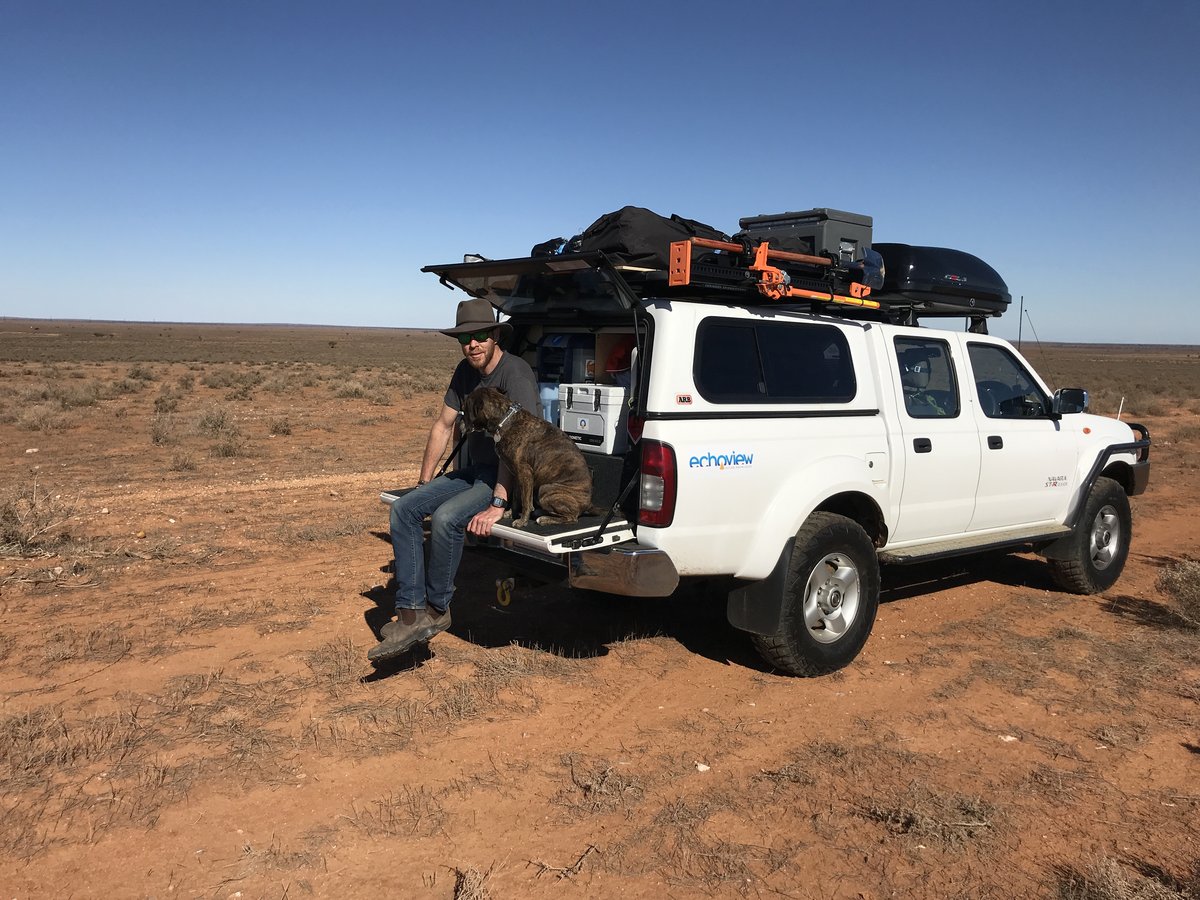
What led you to the field of scientific echosounding?
I’d like to say I had a plan but, as with most things, it was probably more a sequence of chance events. Apparently, I had an affinity for the natural world from an early age (encouraged, no doubt, by a healthy diet of David Attenborough on the TV) and I always enjoyed the more sciencey subjects at school, especially biology. Working from an initial, broad canvas, I think teachers play a huge role in shaping your interests and skills.
I studied marine biology at Swansea University (Prifysgol Abertawe) in Wales (lectures were not well attended when the surf was good), after which I toyed with the idea of finding a job (eek!) or continuing on to a Masters or PhD. A chance encounter with one of my lecturers after graduating led me to a PhD in biological oceanography with the newly fledged University of the Highlands and Islands, based at Dunstaffnage Marine Laboratory in Oban, Scotland. There I studied the role of zooplankton vertical migration in the storage of carbon in the ocean, and schemed about ways to carry out my studies in exotic places around the world. This led me to two additional study sites—the Sargasso Sea off Bermuda and Doubtful Sound in the Fiordland region of New Zealand.
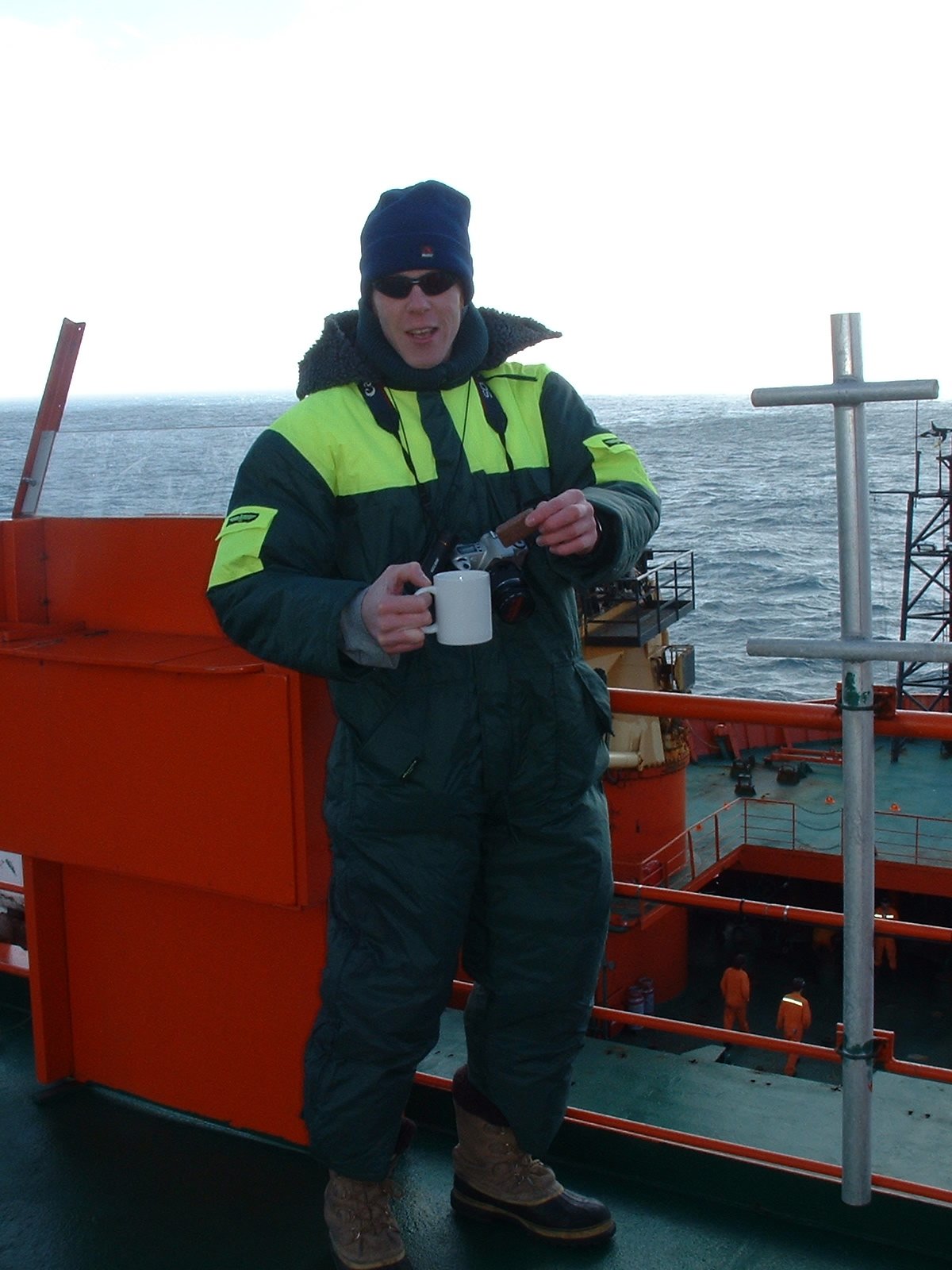
My primary PhD research tool was a plankton net, which yields specimens but provides only a limited view of the aquatic ecosystem. Our research group in Scotland, however, had also deployed an acoustic Doppler current profiler (ADCP) on a stationary mooring in the Clyde Sea
I thought the echo images from this instrument revealed a far more compelling and comprehensive view of animal behaviour, and I was hooked.
On completing my thesis in 2003 I successfully applied for a job as Fisheries Acoustician with the Australian Antarctic Division (AAD) in Tasmania—it ticked the ‘exotic’ box, and my (much needed) learning journey began immediately en route to Tasmania with a week-long scientific-echosounding course in Norway, run by Simrad (an echosounder manufacturer) in collaboration with the Norwegian Institute of Marine Research. During my 5 years at AAD I undertook two surveys in the Southern Ocean and learned about echosounders, survey design, krill, the politics of environmental management…and Echoview!
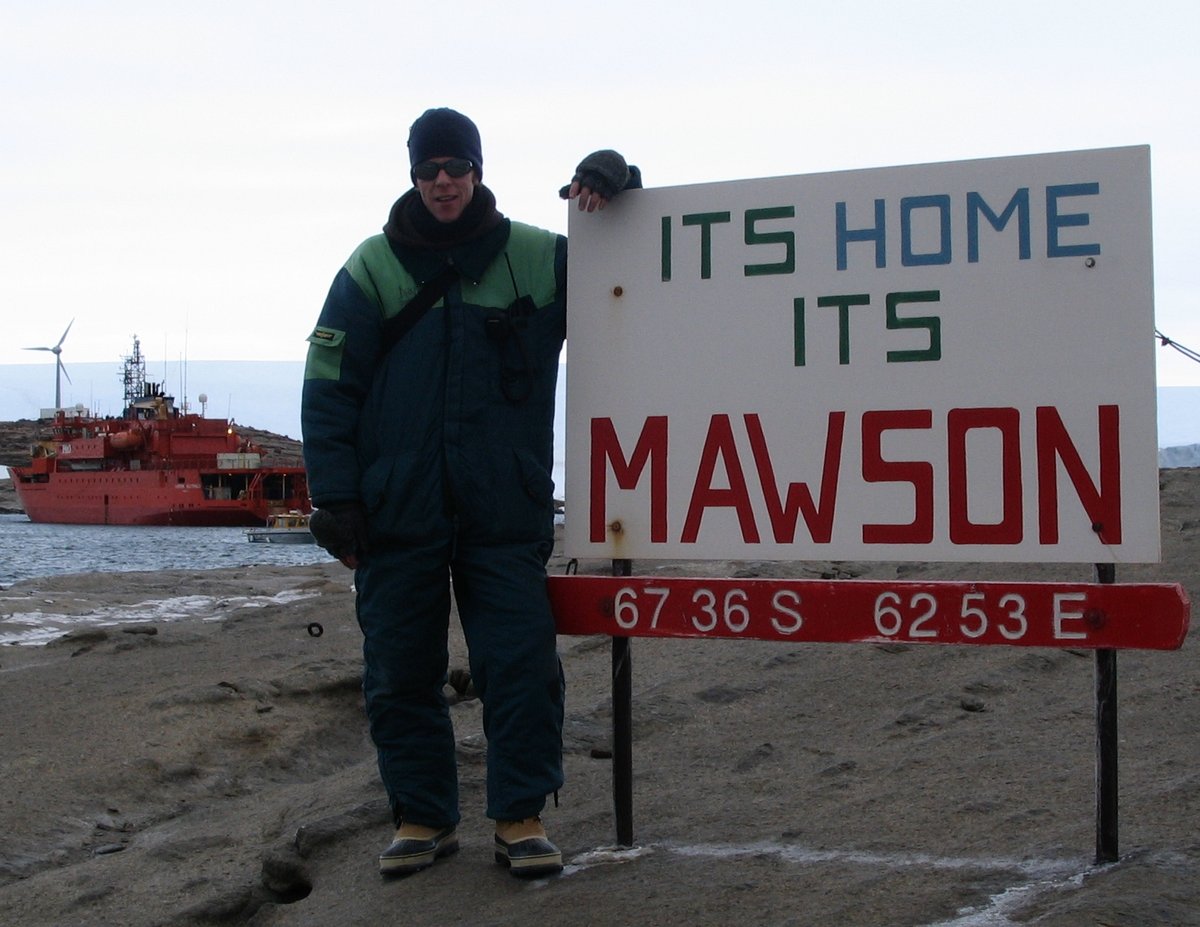
What do you think is most important about scientific echosounding?
Active sonar is perhaps the best tool we have for non-invasively monitoring the underwater environment over space and time. As we continue to raise awareness of the importance of aquatic ecosystems through research and events such as World Ocean Day, World Fisheries Day, World Rivers Day and World Wetlands Day, we come to see the importance of robust science based on reliable technologies.
What advice would you give to anyone considering a career in scientific echosounding?
Active sonar and its application to scientific research can be a daunting topic. This is because it encompasses a wide range of technical topics within the fields of acoustics, electronics, mathematics and signal processing, not to mention biology, ecology, statistics, environmental management…and more!
My general advice to any budding scientist is to develop your critical-thinking skills—question everything, be open-minded and learn how to separate opinion from evidence-based fact. As illustrated by the extensive list of topics above, I think it helps not to limit yourself to a narrow skillset. For example, to help me in my current endeavours I wish I had balanced out my biology-centric studies with more mathematics, engineering and computer science (to mention just a few). Learn how to learn. We live in an unprecedented age of information—armed with critical thinking and the desire to learn, the sky’s the limit! Finally, people are at the heart of everything we do, so it’s important to develop a network. If you’re not sure where to start, why not send us an email and see where it leads!
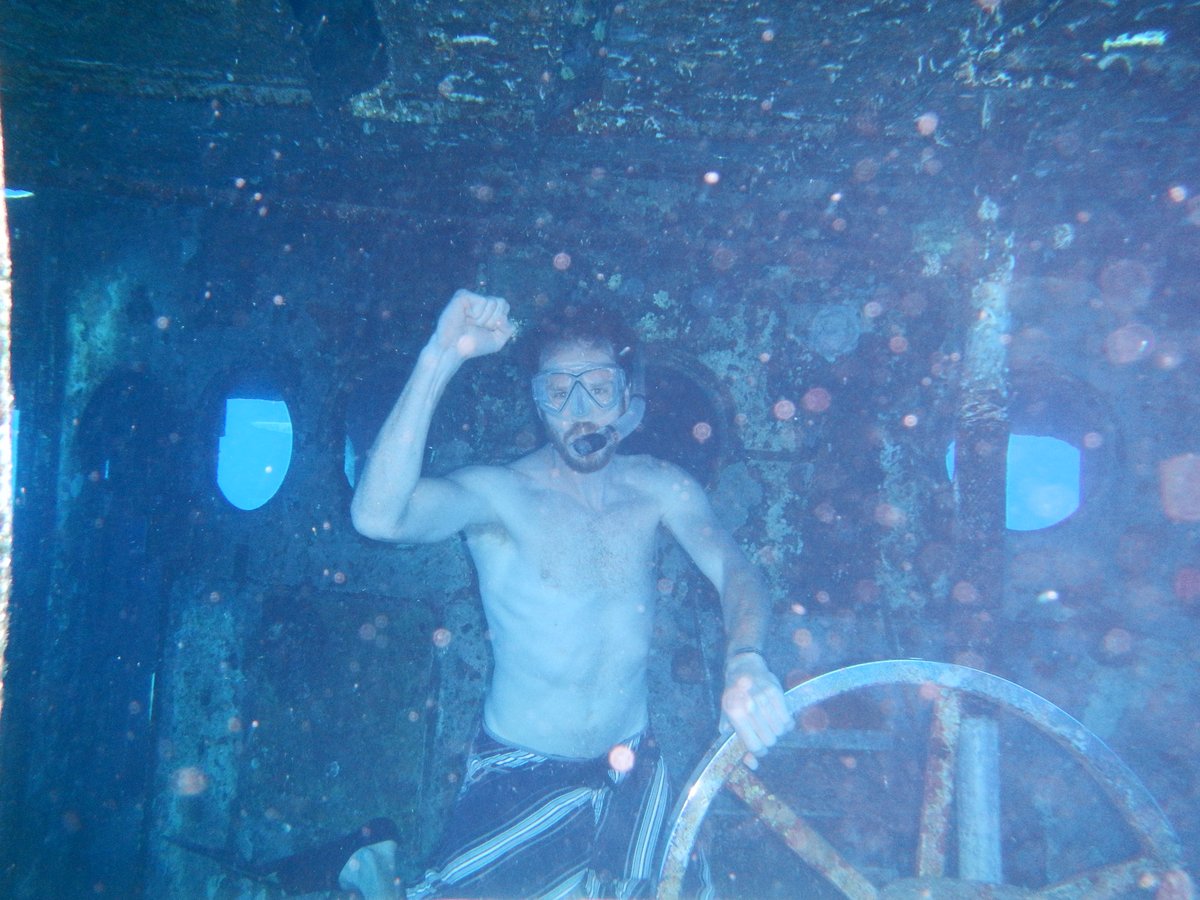
Echoview training courses
To find out more about our Echoview training courses, please visit here.
